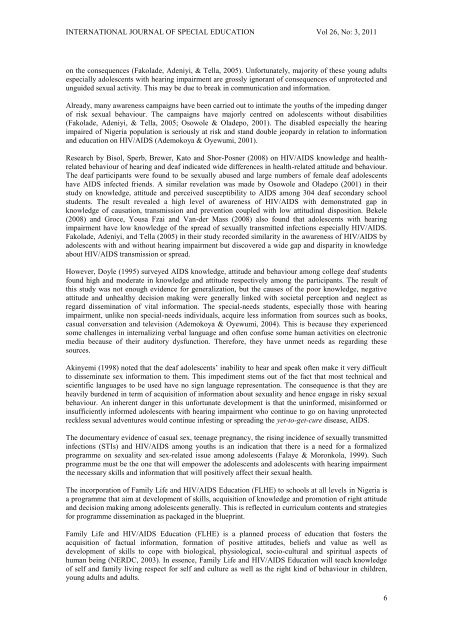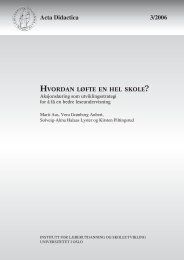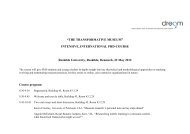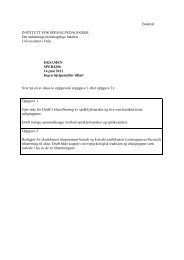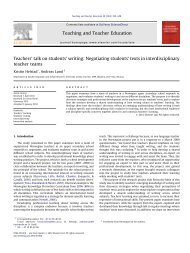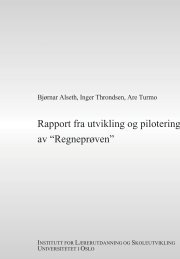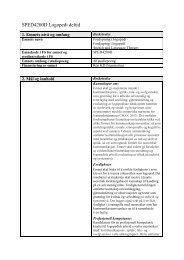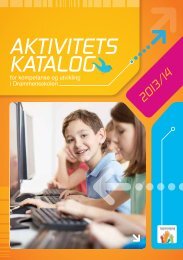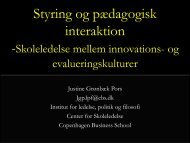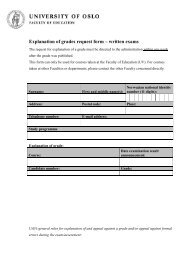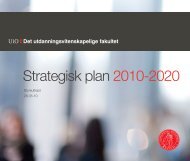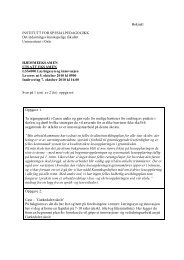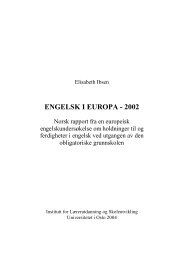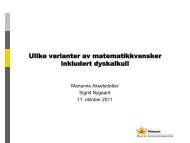International Journal Special Education
International Journal Special Education
International Journal Special Education
You also want an ePaper? Increase the reach of your titles
YUMPU automatically turns print PDFs into web optimized ePapers that Google loves.
INTERNATIONAL JOURNAL OF SPECIAL EDUCATION Vol 26, No: 3, 2011on the consequences (Fakolade, Adeniyi, & Tella, 2005). Unfortunately, majority of these young adultsespecially adolescents with hearing impairment are grossly ignorant of consequences of unprotected andunguided sexual activity. This may be due to break in communication and information.Already, many awareness campaigns have been carried out to intimate the youths of the impeding dangerof risk sexual behaviour. The campaigns have majorly centred on adolescents without disabilities(Fakolade, Adeniyi, & Tella, 2005; Osowole & Oladepo, 2001). The disabled especially the hearingimpaired of Nigeria population is seriously at risk and stand double jeopardy in relation to informationand education on HIV/AIDS (Ademokoya & Oyewumi, 2001).Research by Bisol, Sperb, Brewer, Kato and Shor-Posner (2008) on HIV/AIDS knowledge and healthrelatedbehaviour of hearing and deaf indicated wide differences in health-related attitude and behaviour.The deaf participants were found to be sexually abused and large numbers of female deaf adolescentshave AIDS infected friends. A similar revelation was made by Osowole and Oladepo (2001) in theirstudy on knowledge, attitude and perceived susceptibility to AIDS among 304 deaf secondary schoolstudents. The result revealed a high level of awareness of HIV/AIDS with demonstrated gap inknowledge of causation, transmission and prevention coupled with low attitudinal disposition. Bekele(2008) and Groce, Yousa Fzai and Van-der Mass (2008) also found that adolescents with hearingimpairment have low knowledge of the spread of sexually transmitted infections especially HIV/AIDS.Fakolade, Adeniyi, and Tella (2005) in their study recorded similarity in the awareness of HIV/AIDS byadolescents with and without hearing impairment but discovered a wide gap and disparity in knowledgeabout HIV/AIDS transmission or spread.However, Doyle (1995) surveyed AIDS knowledge, attitude and behaviour among college deaf studentsfound high and moderate in knowledge and attitude respectively among the participants. The result ofthis study was not enough evidence for generalization, but the causes of the poor knowledge, negativeattitude and unhealthy decision making were generally linked with societal perception and neglect asregard dissemination of vital information. The special-needs students, especially those with hearingimpairment, unlike non special-needs individuals, acquire less information from sources such as books,casual conversation and television (Ademokoya & Oyewumi, 2004). This is because they experiencedsome challenges in internalizing verbal language and often confuse some human activities on electronicmedia because of their auditory dysfunction. Therefore, they have unmet needs as regarding thesesources.Akinyemi (1998) noted that the deaf adolescents’ inability to hear and speak often make it very difficultto disseminate sex information to them. This impediment stems out of the fact that most technical andscientific languages to be used have no sign language representation. The consequence is that they areheavily burdened in term of acquisition of information about sexuality and hence engage in risky sexualbehaviour. An inherent danger in this unfortunate development is that the uninformed, misinformed orinsufficiently informed adolescents with hearing impairment who continue to go on having unprotectedreckless sexual adventures would continue infesting or spreading the yet-to-get-cure disease, AIDS.The documentary evidence of casual sex, teenage pregnancy, the rising incidence of sexually transmittedinfections (STIs) and HIV/AIDS among youths is an indication that there is a need for a formalizedprogramme on sexuality and sex-related issue among adolescents (Falaye & Moronkola, 1999). Suchprogramme must be the one that will empower the adolescents and adolescents with hearing impairmentthe necessary skills and information that will positively affect their sexual health.The incorporation of Family Life and HIV/AIDS <strong>Education</strong> (FLHE) to schools at all levels in Nigeria isa programme that aim at development of skills, acquisition of knowledge and promotion of right attitudeand decision making among adolescents generally. This is reflected in curriculum contents and strategiesfor programme dissemination as packaged in the blueprint.Family Life and HIV/AIDS <strong>Education</strong> (FLHE) is a planned process of education that fosters theacquisition of factual information, formation of positive attitudes, beliefs and value as well asdevelopment of skills to cope with biological, physiological, socio-cultural and spiritual aspects ofhuman being (NERDC, 2003). In essence, Family Life and HIV/AIDS <strong>Education</strong> will teach knowledgeof self and family living respect for self and culture as well as the right kind of behaviour in children,young adults and adults.6


